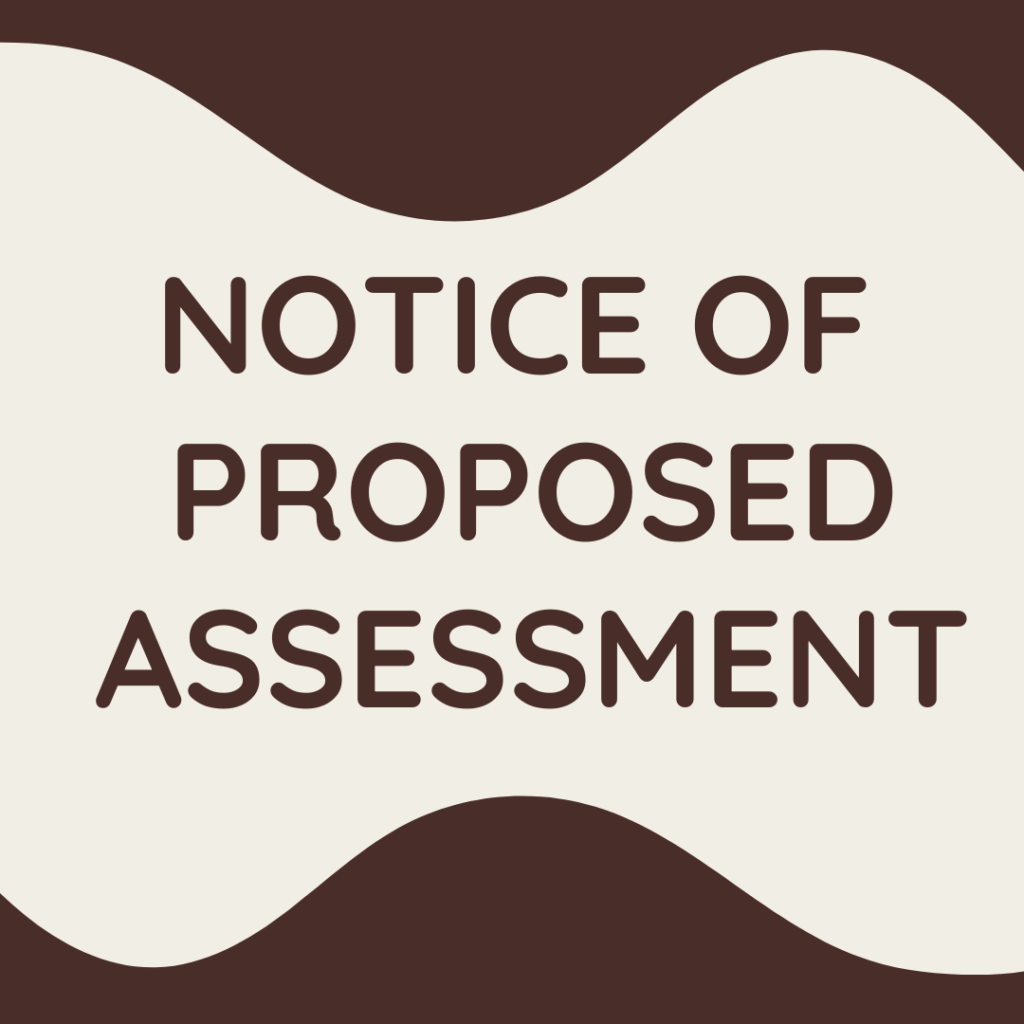NEWS & INSIGHTS


What is a Notice of Proposed Assessment from the Florida Department of Revenue?
A Notice of Proposed Assessment (NOPA) is an official communication from a taxing authority, such as the Florida Department of Revenue (FDOR) or the IRS, indicating that they believe a taxpayer owes additional taxes, interest, or penalties. This notice is a preliminary determination based on audits, reviews of tax returns, or other discrepancies in tax reporting.
Understanding a Notice of Proposed Assessment is critical, as it provides taxpayers an opportunity to dispute the proposed changes before the assessment becomes final and enforceable.
Key Elements of a Notice of Proposed Assessment
A typical Notice of Proposed Assessment includes:
- Taxpayer Information: The recipient’s name, taxpayer identification number, and other relevant details.
- Assessment Details: The tax periods under review and the proposed additional tax liability, including interest and penalties.
- Reason for the Assessment: An explanation of why the taxing authority believes additional taxes are owed. This could stem from:
- Discrepancies in reported income.
- Improper or missing deductions or exemptions.
- Underpayment of taxes or unfiled returns.
- Response Deadline: A specific date by which the taxpayer must respond to contest the notice or pay the proposed amount.
- Next Steps: Instructions for disputing the assessment, such as filing an appeal or requesting a hearing.
Why You Might Receive a Notice of Proposed Assessment
A NOPA can arise for several reasons, including:
- Audits: The taxing authority conducted an audit of your tax returns and identified errors or omissions.
- Failure to File: If a required tax return was not filed, the FDOR may estimate your tax liability based on available information.
- Unreported Income: The department found income that wasn’t reported on your tax return, such as W-2s, 1099s, or business earnings.
- Calculation Errors: Mathematical mistakes on a tax return that result in underreported taxes.
- Ineligibility for Deductions or Credits: Misapplication of tax deductions or credits that you were not entitled to claim.
How to Respond to a Notice of Proposed Assessment
It’s important to take action quickly when you receive a NOPA. Here are the steps to follow:
- Review the Notice Carefully
- Ensure the information pertains to you.
- Identify the tax period in question and the proposed adjustments.
- Compare the notice details with your tax records.
- Gather Documentation – If you believe the assessment is incorrect, collect all supporting documentation, such as receipts, bank statements, and tax forms, to substantiate your position.
- Contact the Taxing Authority
- Reach out to the FDOR or relevant agency for clarification if the notice is unclear.
- Many errors can be resolved through discussion or by providing additional information.
- File a Protest or Appeal
- If you disagree with the proposed assessment, you may submit a written protest within the specified deadline (usually 60 days in Florida).
- Include all supporting evidence and a clear explanation of why the assessment is incorrect.
- Seek Professional Help – Consider consulting a tax attorney, CPA, or enrolled agent to help navigate the process, especially for complex cases.
- Pay or Arrange Payment – If the assessment is accurate, you can pay the amount owed or request a payment plan if you’re unable to pay in full.
Consequences of Ignoring a Notice of Proposed Assessment
Failing to respond to a NOPA can lead to serious consequences, including:
- Final Assessment: The proposed amount will become a final tax liability.
- Enforcement Actions: The FDOR may initiate collection actions such as liens, levies, or wage garnishments.
- Increased Costs: Interest and penalties will continue to accrue on unpaid amounts.
How to Prevent Future Notices
To avoid receiving a Notice of Proposed Assessment:
- File accurate and timely tax returns.
- Maintain organized records of income, expenses, and deductions.
- Consult a tax professional for assistance with complex filings.
- Respond promptly to any correspondence from the FDOR or other taxing authorities.
Conclusion
A Notice of Proposed Assessment is not the final word on your tax liability. It serves as an opportunity for taxpayers to review and address potential discrepancies before additional taxes are officially assessed. By acting promptly and seeking guidance when needed, you can protect your rights and minimize financial and legal repercussions.
For more information about Notices of Proposed Assessment in Florida, visit the Florida Department of Revenue website or consult with a tax professional.
Additional Articles by the SALTy Orange at Moffa Tax Law:
Notice of Intent to Make Audit Changes DR-1215
DR-840 Notice of Intent to Audit Books and Records – 2025
What to Expect from a Florida Tax Audit
Temporary Suspension of Hillsborough County Discretionary Sales Surtaxes
Motor Vehicle Sales Tax Rates by State – 2024

Jeanette Moffa, Esq.
Phone: (954) 800-4138
Email: JeanetteMoffa@MoffaTaxLaw.com
Jeanette Moffa is a Partner in the Fort Lauderdale office of Moffa, Sutton, & Donnini. She focuses her practice in Florida state and local tax. Jeanette provides SALT planning and consulting as part of her practice, addressing issues such as nexus and taxability, including exemptions, inclusions, and exclusions of transactions from the tax base. In addition, she handles tax controversy, working with state and local agencies in resolution of assessment and refund cases. She also litigates state and local tax and administrative law issues.


